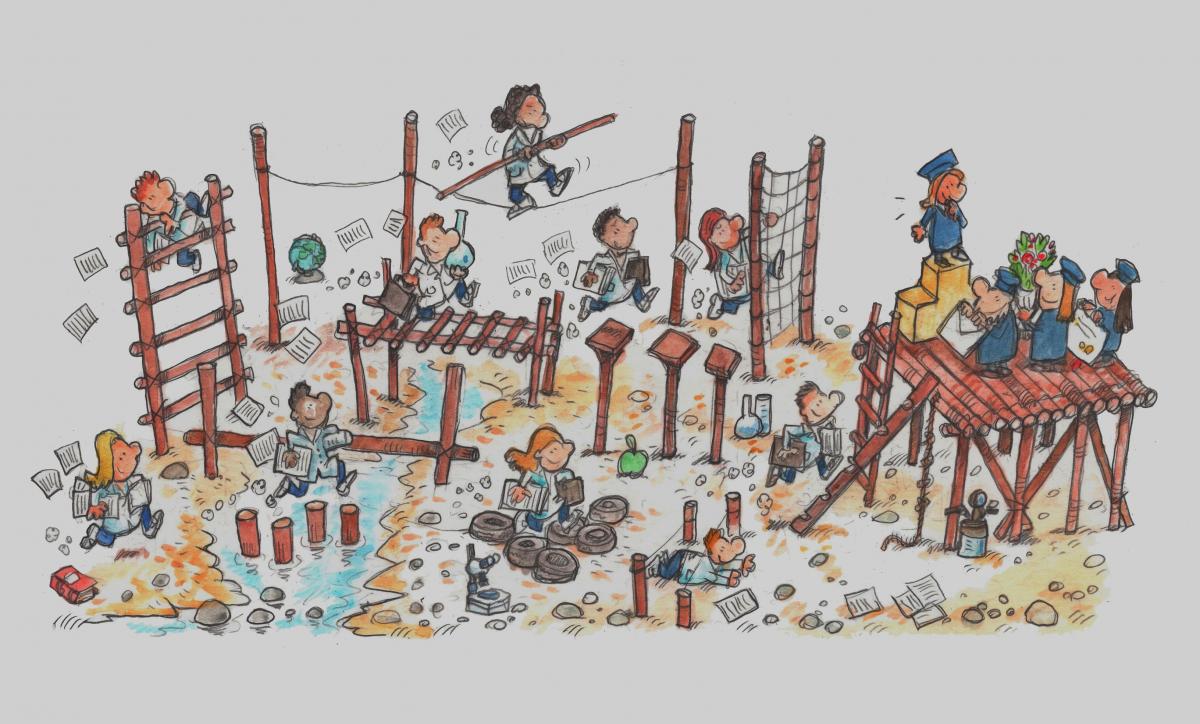Ethical Forum 2024 - Thursday December 5, 2024, 2 - 6 pm
22nd Ethical Forum of the University Foundation
TOWARDS A REVOLUTION IN THE ASSESSMENT OF ACADEMICS ?

“As regards both appointments and promotions, it is the research performance of an academic that matters more than anything else, and this performance can be accurately measured by quantitative indices.” This twofold doctrine has been gaining ground in recent decades. But it is increasingly challenged.
Thus, in December 2022, the European University Association, Science Europe and the European Commission drafted an agreement on how to reform research assessment across Europe. It advocates basing the assessment of research performance "primarily on qualitative judgement, for which peer review is central, supported by responsible use of quantitative indicators".
Moreover, within the framework of CoARA (Coalition for Advancing Research Assessment), a “Working Group on Reforming Academic Career Assessment” was set up under the chairmanship of the European University Association and the Young Academy of Europe. It is guided by the conviction that the assessment of academics “should adequately reflect the different tasks, functions and roles academics fulfil over the course of their career”, which include teaching, innovation, management and service to society in addition to research.
Is this the start of a revolution? A revolution to be welcomed by all those who believe that more balanced assessment practices will enable our universities and its members to better fulfil the whole range of their missions. A revolution to be welcomed also by all those concerned by the domination of Anglo-American practices, rankings, indices and journals.
Or is this a short-lived effort that is bound to fail? Is it not obvious that the alternative to admittedly narrow, yet objective, quantitative criteria will mean either serious peer review with an unsustainable opportunity cost for the academics involved in it or a return to subjective decisions, nepotism and inbreeding? Is it not obvious that institutions that opt for these broader assessment methods will be seriously disadvantaged in applications to funding bodies that stick to the usual criteria?
Is it not likely that some brilliant European researchers will be denied appointment or promotion, or be weary of sacrificing their career prospects elsewhere, as a result of the implementation of this broader set of criteria? Is it not likely that universities will want to keep giving a firm priority to research in order to distinguish themselves from the more professionally oriented institutions of higher education?
The question, therefore, is whether it is possible to design and implement the proposed alternative criteria so as to immunize them sufficiently against such risks.
If so, the revolution may have a chance.
Organizing committee
J.P. Lambert (coordinator), H. De Schutter (coordinator), E. De Keuleneer, B. De Munck,
H. Garmyn, Q. Michel, P. Van Parijs, D. Willems, J. Willems.
Participation is free of charge, but advance registration is requested. A link for on line registration will be made available in October.
